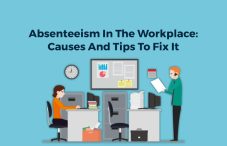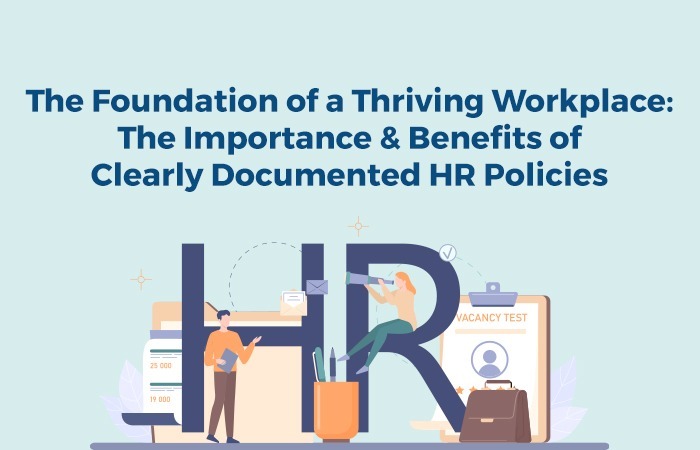Everyone should have the opportunity to take time off if they feel unwell or need a break from their regular routine. We also want to ensure that employees who are otherwise well and will be affected by the absence of other employees are supported as much as possible during other’s absence periods. This can include providing access to essentials like food, and work accessories, or paying for alternative forms of travel such as taxi fares or public transport.
While most of us are supportive of absences due to illness, we also know that it’s important to attend your job as normal. An absenteeism rate of 3-5% over a period of time will become detrimental to your business. When this occurs, you will have lost productivity and experience a drop in profitability. It is important that you address the issues before they impart a productivity fall and have a negative impact on your business.
What Is Absenteeism in the Workplace?
Absenteeism in the workplace is when employees are consistently absent and it’s generally unplanned and without a good reason. If your employees are consistently absent, there could be a deeper meaning behind why they may not be present at work. It is essential that you address this issue by informing your employee of their duties and expectations. If an employee fails to do as directed and fails to show up for work when they are scheduled, this would count as absenteeism and can be broadly categorized as:
1. Authorised & Planned
2. Unplanned, Genuine Absences
3. Unauthorized Absences
What Causes Absenteeism?
There are a few things that can cause your workforce to be absent. Some of these are avoidable while others might be unavoidable. The trick is to find out what’s causing your workforce to be absent, so you can take steps to prevent it in the future.
1) Minor Illnesses
Minor illnesses account for around 27.2% of total days lost to sickness. This can be a problem if employees are unable to work, affecting their income and their ability to pay bills on time.
2) Mental Health
It’s important to create a workplace where employees feel supported, valued, and heard. Employers should be clear about how they are going to address mental health issues in the workplace while ensuring that no discrimination occurs, as these can have a significant impact on an employee’s well-being.
Burnout is a common ailment in the workplace. Employees who feel burnt out and stressed are less likely to feel excited about work. It might be that participating in their role will only add to their stress. Workplaces need to create places where employees feel supported and comfortable discussing how they think if they wish to do so.
3) Major Illness and Long-Term Conditions
When an employee is off work due to an illness or accident, it’s important for employers to take time to manage their employee’s absence. This can be tricky in some workplaces as there are many other things that need to get done while your employee is out. You should seek advice from your HR team on how best to handle the situation so you’re not placing strain on others and getting stuff done in your team.
4) Workplace Bullying or Harassment
If you have a workplace bullying problem, it’s important to involve your HR department and legal advisor. The results of an investigation are likely to impact everyone in the same way one person’s bad behavior would. A team approach is essential – it’s unlikely a single employee will rise above their colleagues and provide leadership without some support. And some more are :
- Family Issues
- Bereavement
- Commuting Issues
- Team and Management Issues
What Can You Do to Fix It?
To engage your employees in the absence management process, focus on providing them with information, such as clarity on absence procedures, and how they can get support from you as an employer. Here are some tips for increasing engagement in your workplace and supporting your employees:
1) Offer Workplace Flexibility & Remote Work Options
Remote work is becoming increasingly important as companies across the globe are realizing the benefits for their business. Remote working allows employees to be part of a team, but work in a flexible way depending on their mood and situation.
Remote working allows employees to manage their time more flexibly and meet organizational goals better. An employee can be anywhere in the world and still make a valuable contribution to a business, thus benefiting both the employee and the employer.
2) Reduce Workplace Stress
There are lots of ways to reduce the impact that stress can have on your employees and workplace. As well as offering regular breaks, wellness initiatives, and support for employees, go all-out in providing well-designed office spaces that encourage productivity and help foster a healthy working environment. Invest in technology that’s easy to use, such as laptops or tablets; they could also be provided with printers and other devices as needed so people can work from home if they need to.
Ensuring employee stress-related mental well-being is just as important as any other area of health and well-being for employees. If your workplace is not as healthy or engaging as it could be, then you’re leaving money on the table. Here are some ideas to increase workplace well-being:
● Track your stressors. Keep a journal for a week or two to identify which situations create the most stress and how you respond to them. …
● Develop healthy responses
● Establish boundaries
● Take time to recharge
● Learn how to relax
● Talk to your supervisor
● Get some support
3) Provide Mental Health Support
Mental health issues can be challenging to manage. Prescription and over-the-counter treatments are available, as are support groups or counsellors. However, sometimes employees struggling with mental health issues need extra support than just mindfulness activities and wellness initiatives. Offering an EAP( employee assistance program) service can be beneficial for both your company and the individual employee.
4) Place Importance on Communication
Communication is crucial. That’s why it is important to check in with your employees regularly during periods of sickness or stress. It allows you to show them that you believe in their ability to return to normal duties whenever they are ready.
Communication in the workplace is important because it boosts employee morale, engagement, productivity, and satisfaction. Communication is also key for better team collaboration and cooperation. Ultimately, effective workplace communication helps drive better results for individuals, teams, and organizations.
5) Recognize and Reward Attendance
Recognize and reward your employees for showing up and appreciating all the work they’ve done. Employees are more motivated if they have the opportunity to gain recognition for doing the work of others in their absence. Some tangible examples of tangible rewards that can be considered are:
● Paid days off for employees who meet attendance requirements for a set period of time
● Office games that allow employees to extra cash or time off for good attendance
● Special gifts for employees who meet attendance requirements for a set period of time.
6) Have an Absence Management Policy
It’s important to ensure a clear absence management policy is in place, this should set out how your business deals with short-term, long term and habitual absences. Each staff member should know how the policy works, where it is stored in your organization, and what action to take if there are frequent days off.
In conclusion, it can be reemphasized that organization can reduce absenteeism by creating an environment where employees feel comfortable sharing any and all of their personal issues/worries with their team and thereby creating a more collaborative and nurturing environments overall with a strong impetus on the well being of its employees.













